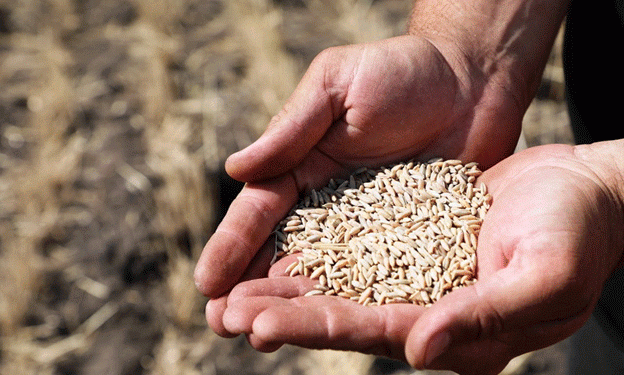Kazakhstan’s wheat exports have taken a sharp downturn, falling by 39.2% between January and August 2023, totaling just 3.13 million tons. This sharp decline has sparked concern among industry leaders and policymakers, with many pointing to underfunding and outdated agricultural practices as the root causes.
According to Toleutai Rakhimbekov, the first deputy chairman of the Auyl Party and former vice-minister of agriculture, a lack of financial support for farmers is the primary reason for the decline. With limited working capital, many farmers are unable to invest in modern agro-technologies, leading to reduced yields and increased production costs. This has made Kazakh wheat less competitive on the global market, particularly against Russia, which has significantly boosted its grain production over the past 20 years, growing to 130-140 million tons annually.
Russia’s competitive edge comes not only from higher yields but also from lower production costs, even in regions like Omsk, where climatic conditions are similar to northern Kazakhstan. Russian grain quality also remains high, further increasing their market share at Kazakhstan’s expense.
The Four Key Factors for Wheat Production Success
Rakhimbekov emphasizes that four key factors are essential for achieving stable and high crop yields: quality seeds, fertilizers, pesticides, and adherence to proper agronomic practices. However, many Kazakh farmers struggle to secure funding in time to invest in these inputs, with financing for spring fieldwork (SFW) often delayed. While the planting season for grains typically takes place in May, farmers need access to funds as early as November-December or, at the latest, January-February to properly prepare.
Unfortunately, loans for SFW and subsidized fuel often arrive late, sometimes as late as May or June. Moreover, these resources are typically available only to large agricultural producers who can offer collateral for loans, purchase fuel in bulk, and have storage facilities. This leaves smaller farmers, who make up the majority of Kazakhstan’s agricultural sector, at a severe disadvantage.
The majority of Kazakhstan’s farmers are still using old, ineffective seeds and applying fertilizers and pesticides at only 10% of the necessary levels. Compounding the issue, many continue to rely on Soviet-era tractors and combines, which limits their efficiency and yields.
A Call for a New Agricultural Strategy
Rakhimbekov argues that Kazakhstan’s agricultural challenges cannot be solved through short-term fixes. He proposes the development of a comprehensive national strategy for agricultural and rural development spanning the next 50 years. This strategy should address several key factors:
- Climate Change Adaptation: Developing new crop varieties and livestock breeds suited to changing climatic conditions.
- Soil Degradation: Promoting sustainable land use practices and advancing new agricultural technologies to combat large-scale soil degradation.
- Shifting Agricultural Structures: Recognizing that 80% of agricultural output is currently produced by small-scale farmers and household plots, the strategy should include measures to support these small producers with modern technologies and access to markets.
Without a long-term vision and sufficient financial support, Kazakhstan risks further losses in both domestic agricultural productivity and international market competitiveness. Rakhimbekov’s call for reform reflects the urgency of addressing the root causes of the wheat export crisis and ensuring the sustainability of Kazakhstan’s agricultural sector.
The sharp decline in Kazakhstan’s wheat exports highlights the deep-rooted issues within the agricultural sector, from underfunding to outdated practices. As global competition intensifies, Kazakhstan must act swiftly to modernize its agricultural infrastructure, support small-scale farmers, and develop a long-term strategy to adapt to the challenges posed by climate change and soil degradation. Without these reforms, Kazakhstan risks losing its position in the global grain market.
Error





